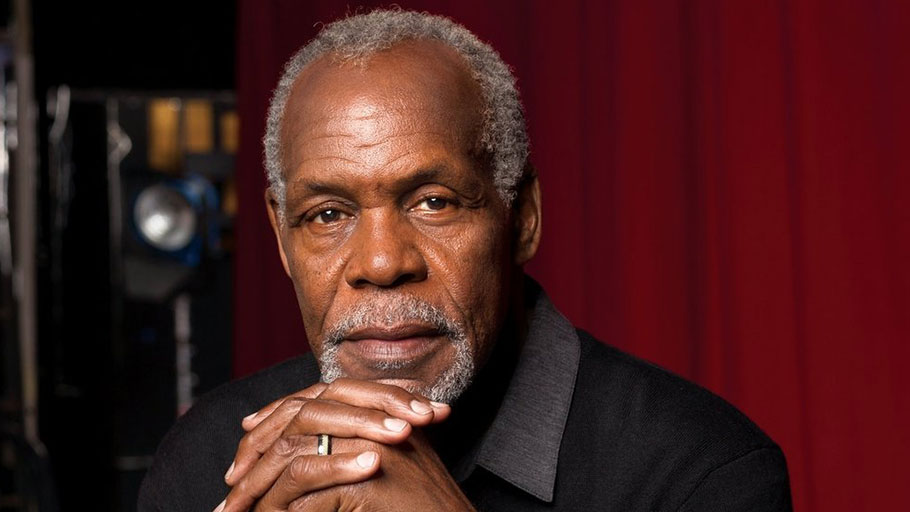By Danny Glover
United Nations Ambassador for the International Decade for People of African Descent,
Board Member Institute for Policy Studies
The public lynching of George Floyd pierced deep into the “souls of Black folks” compelling a thorough-going examination of the flawed foundation, values, systems and symbols of white supremacy and structural/institutional racism in these United States.
A massive Black Lives Matter-led, multiracial, cross-generational movement has erupted in cities large and small and surprisingly in rural towns and villages where few if any Black people reside. According to a recent article in the New York Times, we are witnessing the unfolding of the largest social movement in the history of the country; a movement which marks an inflection point, where there is not only a demand for fundamental restructuring of policing and the criminal justice system, but a reckoning with an original sin that gave birth to a racialized capitalist political-economy in this nation.
Speaking at a Congressional Black Caucus Press Conference on July 10th of this year, Congresswoman Sheila Jackson Lee said: “systemic racism has been a cancer on the skin and the fabric of this nation that has not been remedied. It has only deepened. Reparations are the answer to the original sin.”
Encouraged by the mass movement in the streets, Congresswoman Lee has adopted Dr. Martin Luther King’s “Why We Can’t Wait” as the call to action as she prepares to push for passage of HR-40 in the House of Representatives.
An American history of progressive African American life sacrifices and transformative struggles for consistent democracy, justice, and material well-being has brought the nation to this moment of reckoning and great promise. When the walls of segregation remained firmly intact throughout the South and de facto segregation was the order of the day in the north, Dr. Martin Luther King, Jr, ever the optimist was convinced that the “Negro Revolution” would succeed. “Why We Can’t Wait” was a declaration of his determination to intensify the movement to finally ensure “liberty and justice for all” in this nation.
The Civil Rights Act of 1964 and Voter Rights Act of 1965 marked major successes of the “Negro Revolution” along the path towards a more perfect union. By 1967 Dr. King was openly expressing his opposition to the Viet Nam War, calling for a “revolution of values” and fundamental structural/institutional change in America. He proclaimed: “True Compassion is more than flinging a coin to a beggar; it comes to see that an edifice which produces beggars needs restructuring.”
Despite the “strides toward freedom” of the “Negro Revolution” and the era of ‘Black Power,” the COVID-19 Pandemic and the epidemic of police violence and murders of Black people has revealed anew in stunning detail the raw racial and socio-economic disparities that still afflict people of African descent in this country.
Reparations for the enslavement of African Americans and racially exclusionary policies after generations of heroic, multigenerational struggle, dating from the 1863 Emancipation Proclamation, has now gained remarkable momentum. The concept of HR-40 the Congressional Bill first introduced in 1989 by the late Congressman John Conyers, Jr. to study the institution of slavery and assess restitution has taken on new life.
Under the leadership of the National African American Reparations Commission (NAARC) a Working Group which includes the National Coalition for Reparations for Blacks in America (N’COBRA) and the Movement for Black Lives (M4BL) collaborated with Congressman Conyers’s staff to reformulate HR-40 from a “study” bill to a “remedy” bill. The revised HR-40 is entitled: “Commission to Study and Develop Reparation Proposals for African-Americans Act.”
Congresswoman Sheila Jackson Lee has become the Lead Sponsor of HR-40. Under her leadership and the advocacy of the N’COBRA Legislative Committee along with the American Civil Liberties Union (ACLU), Human Rights Watch (HRW) and the Center for American Progress (CAP) HR-40 has amassed more Co-Sponsors than ever before.
Nancy Pelosi, Speaker of the House and the Democratic Leadership fully support the bill and Senator Corey Booker has introduced a Senate version, S.1083 which enjoys the open support of Senate Minority Leader Chuck Schumer.
I was delighted on June 19th/Juneteenth, 2019 to provide testimony at the historic Congressional Hearing on HR-40 convened by the Constitution Sub-Committee of the House Judiciary Committee. Hundreds of people packed the Hearing and overflow rooms, spilling over to hundreds more rallying outside the Rayburn House Office Building.
Millions more watched this amazing moment on C-SPAN and network television, signaling that the issue of reparations had reached a new milestone in terms of public awareness and interest. A year later, the crescendo of demands reverberating from the current uprising in the streets in the wake of the COVID-19 Pandemic and epidemic of police murders of Black people has dramatically increased the urgency for Reparations Now!
As a U.N. Ambassador for the International Decade for People of African Descent, I am honored to join with Congresswoman Sheila Jackson Lee and the allied forces working with her in declaring that we cannot wait in pursuing HR-40 as the harbinger of a new future for people of African descent and the marginalized and oppressed in this nation and the world. Please join with me in expressing your support and petitioning your Congressional Representatives to support passage of HR-40.
The passage of HR-40 will be one of the milestone achievements of the International Decade for People of African Descent. I pledge to work side by side with all people of good will who are committed to achieve this righteous objective. Reparations Now!















